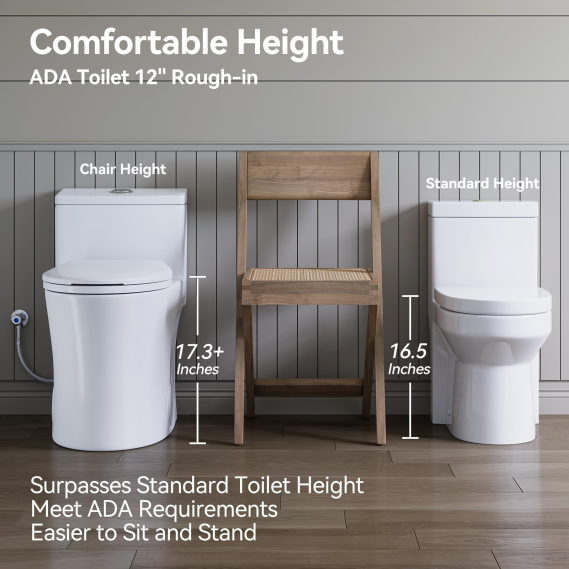- Why Move to Canada in 2025?
- Immigration Pathways to Canada
- Cost of Living in Canada (2025 Updated)
- Car Insurance in Canada (What Newcomers Must Know)
- Healthcare System in Canada
- Job Market in Canada (2025 Outlook)
- Education & Student Life
- Life in Canadian Cities
- Common Challenges Newcomers Face
- FAQs About Moving to Canada in 2025
- Final Thoughts
Every year, thousands of people dream about moving to Canada — and honestly, I understand why. The country consistently ranks among the best places to live worldwide. It has a stable economy, free public healthcare, high safety standards, and a very welcoming environment for immigrants.
If you’re reading this, chances are you’re either planning to move soon or just exploring your options. Either way, this guide will walk you through everything you need to know about moving to Canada in 2025 — from immigration programs (PR), jobs, cost of living, housing, healthcare, and even car insurance.
Unlike most blogs out there, I’ll mix facts with real insights (and maybe a few personal thoughts). No copy-paste stuff. Let’s get started!
Why Move to Canada in 2025?
Canada has become a top destination for immigrants — not just for people from Asia or the Middle East but also Europeans and even Americans looking for a safer, more affordable, and multicultural environment.
Key reasons:
Permanent Residency opportunities: Programs like Express Entry and Provincial Nominee Programs (PNPs) make immigration structured and transparent.
Healthcare system: Public healthcare is free in most cases (though wait times can be long).
Strong job market: Tech, healthcare, and trades are booming.
Safe and multicultural: Cities like Toronto and Vancouver are home to diverse communities.
Education: World-class universities like the University of Toronto, UBC, McGill, and University of Alberta.
👉 According to Statistics Canada (2025 update), Canada welcomed over 465,000 new permanent residents in 2024 and is on track to reach 500,000 immigrants in 2025 under the Immigration Levels Plan.
Immigration Pathways to Canada
1. Express Entry (Federal Skilled Worker)
This remains the most popular program. Points are awarded based on age, work experience, education, and language skills (IELTS or CELPIP). In 2025, CRS (Comprehensive Ranking System) scores have been slightly lower compared to 2023–24, making it a bit easier for skilled workers.
Hot tip: Tech professionals, healthcare workers, and tradespeople have better chances in 2025.
2. Provincial Nominee Programs (PNP)
Each province (Ontario, British Columbia, Alberta, Saskatchewan, etc.) has its own streams. For example:
Ontario Immigrant Nominee Program (OINP): Great for IT professionals.
BC PNP: Welcomes tech workers, healthcare, and trades.
Alberta Advantage Immigration Program: Targets workers in demand like truck drivers, nurses, and engineers.
3. Student Pathway
A huge number of newcomers enter Canada as international students. Tuition is expensive, but many later apply for Post-Graduation Work Permits (PGWP) and then PR.
4. Family Sponsorship
If you have a spouse, parent, or child who is already a Canadian citizen or PR, sponsorship is possible.
Cost of Living in Canada (2025 Updated)
This is where people get shocked. Yes, Canada is beautiful, but living costs are not cheap — especially in Toronto and Vancouver.
Housing
Toronto (Ontario): Avg. 1-bedroom rent ≈ $2,350/month (up 6% from 2024).
Vancouver (BC): Avg. 1-bedroom rent ≈ $2,500/month.
Calgary (Alberta): ≈ $1,600/month (much more affordable).
Montreal (Quebec): ≈ $1,450/month (still the cheapest among big cities).
👉 According to Canada Mortgage and Housing Corporation (CMHC, 2025), rental prices have increased by an average of 5.2% year-over-year.
Groceries & Utilities
Monthly groceries for a family of 4: $1,100 – $1,400
Internet: $70–$100/month
Hydro + heating: $120–$200/month
Transportation
Toronto transit pass: $156/month
Vancouver transit pass: $120/month
Owning a car = insurance + fuel (details below).
Car Insurance in Canada (What Newcomers Must Know)
Car insurance in Canada is not just expensive — it’s sometimes shocking for newcomers.
Ontario (Toronto): Avg. premium in 2025 ≈ $2,400–$2,800/year
BC (Vancouver): ≈ $2,000–$2,500/year (ICBC is government-run here).
Alberta (Calgary): ≈ $1,800/year
Quebec (Montreal): Cheapest ≈ $1,000–$1,200/year
👉 Insurance depends on driving history. If you have an international driving record (especially from the UAE, UK, or USA), bring proof — it can lower your rate.
Healthcare System in Canada
Canada has publicly funded healthcare, meaning doctor visits, surgeries, and hospital stays are usually free. But here’s the catch:
Dental care is NOT covered (private insurance needed).
Prescription drugs may not be free unless you have provincial or employer insurance.
Wait times can be long for non-urgent procedures.
In 2025, the Canadian government is expanding the National Dental Care Plan to cover more families with incomes below $90,000 — a big win for newcomers.
Job Market in Canada (2025 Outlook)
Despite global slowdowns, Canada’s job market remains strong in specific sectors.
Top Jobs in Demand (2025):
Healthcare: Nurses, doctors, caregivers.
Tech: Software engineers, cybersecurity, AI specialists (Toronto, Vancouver, Montreal are tech hubs).
Trades: Electricians, plumbers, truck drivers.
Finance: Accountants, financial analysts, risk managers.
👉 According to Statistics Canada Labour Force Survey (Jan 2025), unemployment is steady at 5.7%, and the tech sector grew by 8% year-over-year.
Education & Student Life
Studying in Canada is still one of the most popular ways to immigrate.
Tuition fees (2025):
Undergrad: CAD $20,000 – $35,000/year
Graduate: CAD $15,000 – $25,000/year
Student Work Permits: You can work up to 20 hours/week during studies, and full-time during breaks.
Post-Graduate Work Permit (PGWP): Up to 3 years, depending on your program.
Hot cities for students: Toronto, Montreal, Vancouver, Ottawa, Edmonton.
Life in Canadian Cities
Toronto (Ontario): Multicultural, financial hub, but expensive.
Vancouver (BC): Beautiful scenery, mild weather, pricey housing.
Calgary (Alberta): Affordable housing, growing tech sector, closer to nature.
Montreal (Quebec): Affordable, European vibe, but French is key.
Common Challenges Newcomers Face
High rent costs
Getting first job without “Canadian experience”
Long healthcare wait times
Harsh winters in provinces like Manitoba, Saskatchewan, Alberta
But trust me, once you adjust, Canada really feels like home.
FAQs About Moving to Canada in 2025
Q1: Is Canada still welcoming immigrants in 2025?
Yes! The Immigration Levels Plan targets nearly 500,000 PRs in 2025.
Q2: What’s the cheapest city in Canada for newcomers?
Montreal and Calgary are more affordable compared to Toronto or Vancouver.
Q3: Can I use my UAE or Pakistani driving license in Canada?
You can drive with an international license for 60–90 days depending on province. After that, you’ll need to exchange it or take a driving test.
Q4: Is healthcare free for newcomers?
Yes, but you may face a waiting period (up to 3 months) depending on province.
Q5: How much money should I bring when moving?
For a single person: $13,757 CAD (as per IRCC 2025). For a family of 4: $25,564 CAD.
Final Thoughts
Moving to Canada in 2025 is still one of the best life decisions you can make — but only if you plan well. Costs are rising, especially in Toronto and Vancouver, but opportunities remain strong in healthcare, tech, and trades.
If you’re considering the move, start with:
Deciding your immigration pathway (PR, student, or sponsorship).
Researching affordable provinces (Calgary, Montreal).
Preparing for job hunting & networking even before landing.
In my opinion, Canada’s mix of safety, opportunity, and diversity makes it worth it — yes, winters are tough, but summers in Vancouver or Toronto totally make up for it 😉

